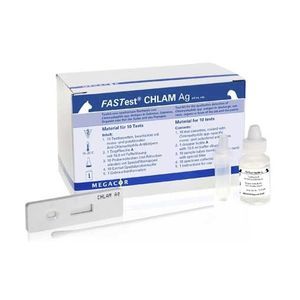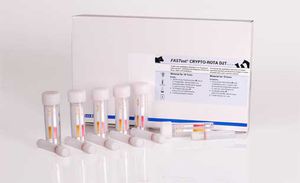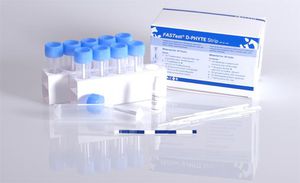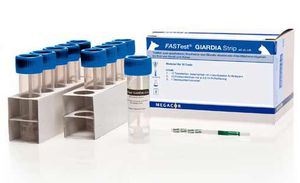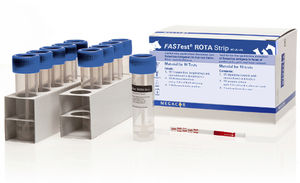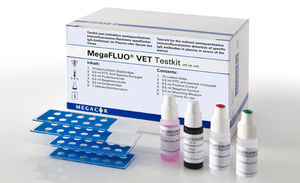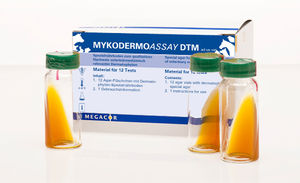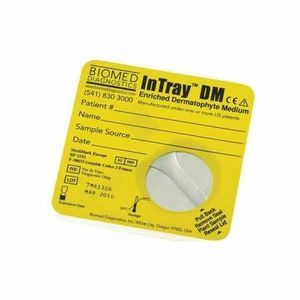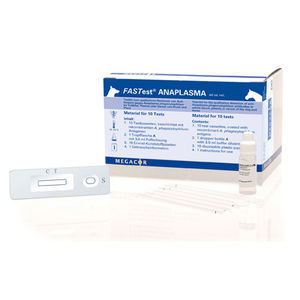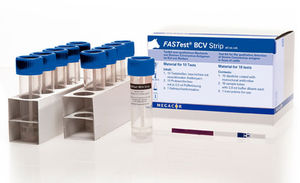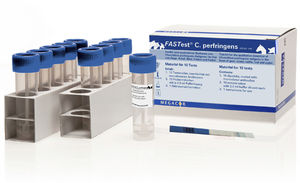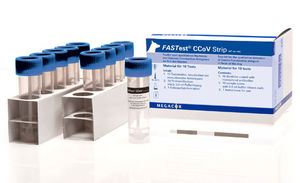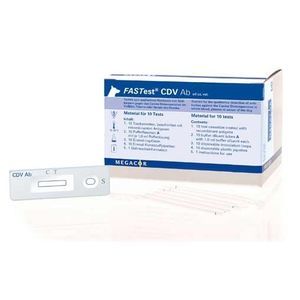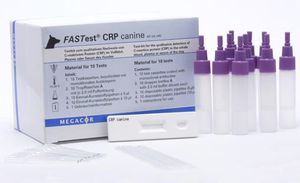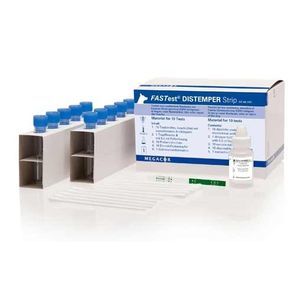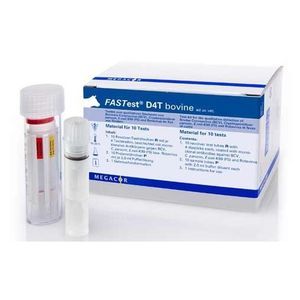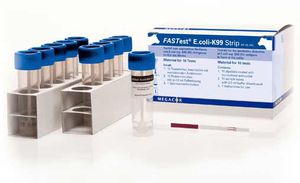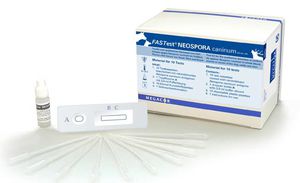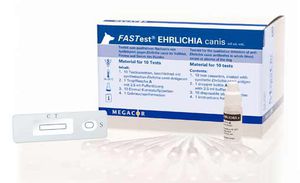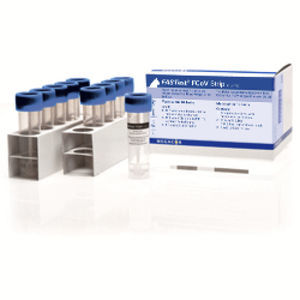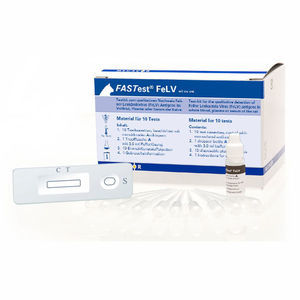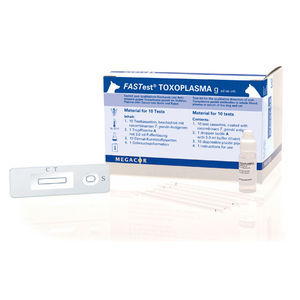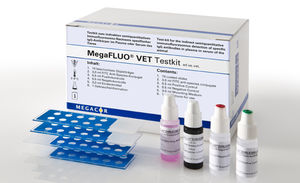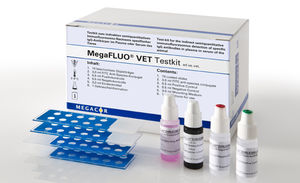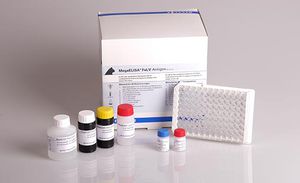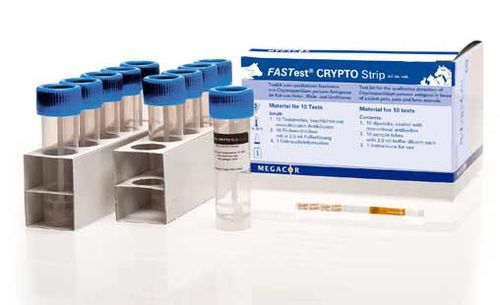
- Laboratory
- Laboratory medicine
- Rapid diarrhea test
- MEGACOR Diagnostik
Rapid diarrhea test FASTest® CRYPTOveterinaryfor antigenslead
Add to favorites
Compare this product
fo_shop_gate_exact_title
Characteristics
- Applications
- for diarrhea
- Application field
- veterinary
- Tested parameter
- for antigens, lead
- Micro-organism
- Cryptosporidium
- Sample type
- clinical, feces
- Analysis mode
- immunochromatographic
- Format
- strip
- Result display time
5 min
- Specificity
99.9 %
- Sensitivity
96.7 %
Description
FASTest® CRYPTO Strip is a rapid immunochromatographic test for the qualitative detection of Cryptosporidium parvum antigens in feces of pocket pets, pets and farm animals.
Diarrhoea can lead to severe courses of disease up to death for all species. Among the diverse diarrhoea pathogens in pocket pets, pets and farm animals, especially Cryptosporidium parvum (C. parvum) is a great challenge for the veterinarian due to its common appearance and zoonotic potential.
In reptiles, C. parvum often is diagnosed as non-pathogenic intestinal bypasser (infected food animals). C. parvum shedding reptiles therefore are a potential infection source for other animals as well as the owners (zoonosis).
Cryptosporidia form two types of infectious oocysts: 20% are thin-walled and stay in the host, where they cause reinfection through autoinfection. The remaining 80% are thick-walled and are excreted intermittently, i.e. not with every defecation, as dormancy stages. These are very resistant and can remain infectious for months. They can infect other animals as well as humans via drinking water (infectious dose Ø 10–100 oocysts).
Prevalences are very variable, in calves 25–100%, depending on the stock. Lambs, piglets and foals are affected, too. In german hedgehogs, prevalences of 21.6% (spring) and 36.6% (autumn) are discovered. Dogs (Germany, Austria ca. 0.5–1%) and cats (Germany, Austria ca. 1–3%) show considerably lower prevalences.
Clinical symptoms can vary depending on age and immune status of the animal. Neonates and young animals are predominantly affected. Caused by the high infectiveness, often a population problem arises. Double infections are not uncommon.
Catalogs
No catalogs are available for this product.
See all of MEGACOR Diagnostik‘s catalogsRelated Searches
- Assay kit
- Blood assay kit
- Molecular biology reagent kit
- Serum assay kit
- Immunoassay assay kit
- Plasma assay kit
- Infectious disease detection kit
- Blood rapid diagnostic test
- Rapid lateral flow test
- Diagnostic reagent kit
- Laboratory reagent kit
- Immunoassay rapid diagnostic test
- Virus rapid diagnostic test
- Serum rapid diagnostic test
- Plasma rapid diagnostic test
- Histology reagent kit
- Infectious disease rapid diagnostic test
- Whole blood rapid diagnostic test
- Reagent medium reagent kit
- Immunology reagent
*Prices are pre-tax. They exclude delivery charges and customs duties and do not include additional charges for installation or activation options. Prices are indicative only and may vary by country, with changes to the cost of raw materials and exchange rates.



